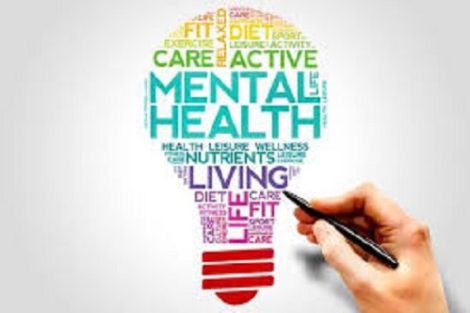Mental Health Counseling Center
A mental health counselor is a professional who utilizes a variety of psychotherapy methods and techniques to help people experiencing psychological distress. The prevalence of mental health problems highlights the demand and need for qualified professionals to diagnose, treat, and prevent mental health issues. In A Guidebook to Human Service Professions, Gitner and Mears suggest that that by 2020, depression will be the second most costly health problem, surpassed only by heart disease. By the age of 55, around half of all adults in the United States will have experienced symptoms of at least one psychiatric problem.
If you are curious about what a mental health counselor can do for you, or thinking about entering this profession yourself, there are a few important things you should know. Learn more about what these professionals do, when you might want to consider seeing one, and what you need to do if you are interested in becoming a mental health counselor.
Where Can You Find Mental Health Counselors?
All people face different psychological challenges at various points in life, and sometimes people need the help of a professional to cope with these difficulties. It can sometimes be confusing to determine what type of help is needed, particularly because there are so many different types of professionals who specialize in treating mental health issues.
Mental health counselors represent just one profession that specifically works with people dealing with cognitive, behavioral, and emotional issues. Counselors work with individuals, families, groups, and communities to deal with mental health issues and improve mental well-being. You might find professional mental health counselors working in a wide range of settings including:
- Mental health clinics
- Schools
- Private practices
- Hospitals
- Community health centers
- Correctional facilities
- Businesses
- Colleges and universities
- Social service agencies
- Government agencies
People experiencing symptoms of psychological illnesses such as depression, phobias, and anxiety may choose to see a mental health counselor for counseling and psychotherapy services. Counselors may also help people experiencing social difficulties, emotional problems, addictions and substance abuse, grief, self-esteem issues, and marital difficulties. Some mental health counselors choose to work with specific populations such as children, the elderly, or college students.
What Do Mental Health Counselors Do?
- Assessing and diagnosing clients experiencing symptoms of psychological distress
- Providing psychotherapy to clients
- Talking to clients about their experiences, emotions, and thoughts
- Conducting group sessions with families
- Working with clients to set goals, develop a treatment plan, and gain insight through treatment
- Working with clients to identify situations, behaviors, and thoughts that interfere with their wellness and recovery
- Examining social issues that may influence a client’s mental well-being including peer pressure, bullying, substance use, prejudice, work stress, financial challenges, and health issues
- Referring clients to other health professionals as well as to other resources in the community such as other social services, job services, and support groups
Counseling tends to view individual needs within a developmental context. Rather than focusing on dysfunction, counselors often see problems as arising from normal reactions to developmental changes or as difficulty dealing with specific life stages. As a result, counselors may focus on personal development by helping you learn the skills and coping abilities you need to deal with such life changes and stages effectively.
While counselors are often called upon to treat specific problems, they also tend to take an approach that focuses on overall wellness. Dealing with the immediate problem is important, but counselors also strive to help you function not just minimally, but optimally. Enhancing overall well-being by solving problems, improving resilience, encouraging healthy behaviors, and improving relationships is a key component of a counselor’s duties.
What Training Do Mental Health Counselors Have?
What type of training do mental health counselors need? Many begin by earning a bachelor’s degree in a human services field such as psychology, sociology, or social work. While having a background in social science is ideal, people with undergraduate degrees in other fields can also enter the field of counseling. This often requires completing a number of basic prerequisite courses before gaining admission to an accredited master’s degree program.
Basic Educational Requirements
The minimum requirements for a licensed mental health counselor are a master’s degree in counseling and at least two to three years of supervised practice under a licensed professional.
Licensing and Certification
States typically require a minimum of 2,000 to 4,000 hours of supervised practice before gaining licensure; however, it is important to check with your state’s licensing board to learn more about specific requirements. Always be sure to check the guidelines in the state where you plan to study and practice.
Once this has been done, aspiring mental health counselors must still pass a state licensing exam. In many states, counselors must first pass a test administered by the National Board of Certified Counselors (NBCC) in order to obtain a license.
Licensing requirements for mental health counselors vary from state to state, and specific titles for these professional designations may vary as well. Mental health counselors may be known as a Licensed Mental Health Counselor (LMHC), Licensed Professional Clinical Counselor (LPCC), or Licensed Professional Counselor (LPC). In most states, the title of “Mental Health Counselor” is a protected title, which means that only people who have met certain state requirements may legally call themselves by that title.
In addition to these basic education and licensure requirements, some counselors also choose to become certified. While this certification is purely voluntary, it is an additional qualification that can make professional counselors more appealing to both employers and potential clients.



























